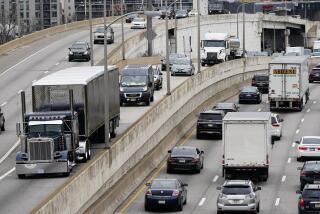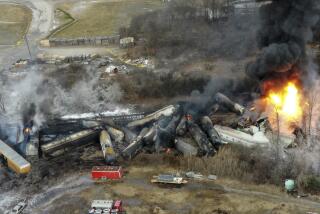Same Standards Urged for Small, Large Airlines
- Share via
WASHINGTON — The National Transportation Safety Board, responding to growing concerns about the small aircraft that handle more than 10% of the nation’s air passenger traffic, Tuesday recommended imposing on commuter airplanes the tougher standards required of major airlines.
In a long-awaited report, the board said commuter pilots tend to work more hours, report greater fatigue and do not receive the same level of training as those working for major airlines. It recommended that commuter carriers be brought up to the same training and safety levels as the major airlines, including the use of flight simulators, which are common in major-airline training but often missing in commuter training.
The Federal Aviation Administration, which oversees air safety, has been accused of moving too slowly to crack down on commuter planes. The FAA agreed immediately with the board’s recommendations. “One level of safety is a top priority of this agency and this Administration,” FAA Administrator David Hinson said.
Hinson, who noted that the FAA has already adopted a number of equalizing regulations, said the FAA will soon release a proposal to require commuter pilots--those flying planes with 30 or fewer seats--to receive the same level of training as major airline pilots.
The Air Line Pilots Assn., which has staged a “one level of safety” campaign for months, praised the safety board’s report. The Regional Airline Assn., which represents commuter airlines, said the board had produced a “quality study.”
The safety board, which investigates major accidents, has no regulatory powers, but its recommendations carry weight with regulatory agencies such as the FAA.
Tuesday’s special report was prompted by commuter crashes in Hibbing, Minn., last December in which 18 were killed, and Columbus, Ohio, in January in which five died. Serious pilot errors were identified in both crashes.
More to Read
Inside the business of entertainment
The Wide Shot brings you news, analysis and insights on everything from streaming wars to production — and what it all means for the future.
You may occasionally receive promotional content from the Los Angeles Times.







